On 25 March 2022 the European Union Commission announced the formation of a Natural Gas buy cartel to try to lower its energy costs.
After the announcement, several experts raised the problems that the EU cartel could bring to international trade and the difficulties in internal policies between its Member States to deal with competitiveness and different supply needs.
It is a big change in the dynamics of energy purchase, since it would unify 27 different buyers in a single agency. But the main reason that the EU has is the decrease of expenses for natural gas imports and decrease dependency on Russian gas.

What is the Gas Purchase Cartel that the European Union wants to form
After the success of the European Union’s joint initiative in the purchase of vaccines for Covid-19 and Epis doctors, the EU comes with a new proposal to join its member states to form a cartel for the purchase of natural gas.
The European Union forms about ¾ of the global purchase of natural gas via pipelines and has a large share in the import of Liquid Natural Gas (LNG) by ports.
The cartel would be an attempt to negotiate prices as a unit to receive lower prices in the market. The main argument for this action is that it makes no sense that Member States compete with each other for the purchase of gas if they are part of a joint organization like the EU.
This plan enters the agenda of strategic autonomy of the EU in relation to Russian gas imports, in addition to gaining strength as a unified geopolitical actor on the international stage.
The participation in the cartel would be voluntary to the member states and would last for a limited period, besides being open to other non-member countries, such as Ukraine, Moldova, and Georgia in the Western Balkans.
The European Union Commission hopes that this purchase plan will be implemented by July 2022, in summer, so that they can carry out the replenishment of the stock until winter and low temperatures.
How this joint gas purchase cartel aims to reduce gas costs across Europe
When meeting in a group of countries to buy resources, it is possible to achieve lower prices, since the individual negotiation work with each participant is simplified.
Thus, an EU buy cartel would make negotiating with exporters cheaper. However, this is not a certainty.
The EU has already tried to set up a cartel to buy nuclear power and the scheme has failed, mainly due to problems with internal competitiveness laws.
Moreover, it is difficult to imagine the market scenario where producers and exporters would accept an agreement that would decrease their profits and change traditional trade relations with countries.
To really achieve an agreement that would change the current dynamic, it takes a strong political power capable of negotiating benefits. Something that the European Union can promise, but that only the US actually has.
What are the obstacles to implementing this EU energy purchase cartel
There are several obstacles to the realisation of the EU energy purchase cartel.
First of all it is important to organize the redistribution after the purchase between the different EU countries, which have different supply needs and capacities to store different gas. For example, Spain and Portugal are not as dependent on natural gas as Germany. Or even the difference in the structure of ports receiving LNG between EU countries.
This creates problems in the internal distribution and accounting of final prices, which will be different when taxes are added for the liquefaction of gas and the payment of transit costs to reach different countries by pipelines.
Another point is that currently the European Union is united against the war in Ukraine, but this does not exclude political internal conflicts between member states and their different interests and responsibilities. A Pentalateral Energy Forum Energy (Belgium, Netherlands, Luxembourg, France, Germany, Austria, Switzerland) will be responsible for dealing with internal issues.
The cartel purchase would mean buying around 100 billion cubic meters of natural gas, about 1/10 of the global transactions, that in liquid natural gas would mean ⅕ of the current market.
With this, the world market would increase prices for all other gas buyers countries. In other words, the EU would have the bargaining power over the world price, which would be unequal competition in a certain way. However, this is already the case when large energy-importing countries such as China also negotiate large-volume purchases at lower prices.
The EU is already very important in the gas market because it involves several purchasing countries. An example of this was the announcement in March 2022 to have its Member States relocate their gas reserves by 80% by October, bringing natural gas prices to €210 (an increase of €140 compared to January).
Would it be possible for there to be an oil-buying cartel such as the OPEC production cartel?
OPEC is an organization set up in theory to stabilize oil sales prices among exporters, but which in practice collectively restricts the production of its members’ oil to increase the prices of “black gold” on the international market.
After the war in Ukraine, fuel prices increased worldwide, causing an increase in world price inflation.
The joining of several nations in a cartel to buy oil would theoretically help in lowering energy prices and thus inflation in several countries, but it could also help further in this worldwide downturn if several purchasing cartels were formed within the energy market.
But this would be a change in all trade dynamics and the world energy market does not host changes quickly, the adaptation process could cause short-term losses to countries that did not adapt, and there is no certainty that it would be a change that would last in the dynamic.
What is the future trend for energy purchasing cartels
The formation of the European Union cartel represents a change in the market, where a single actor would represent 27 countries in the natural gas negotiations.
There are many uncertainties about the possible success of this action, since there are still blind spots about the agreements and internal management. By the end of May 2022 the EU Commission should publish a document showing how the cartel will work better.
If it is successful and well received in the market and in international business relations, it is possible that more regional energy purchasing cartels will be formed with the aim of reducing joint energy procurement costs in general.

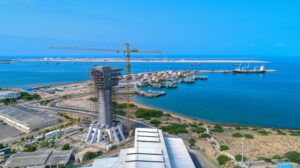
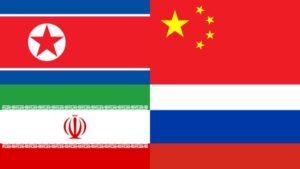
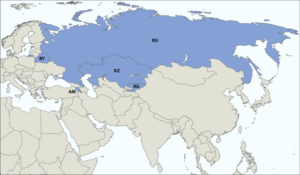

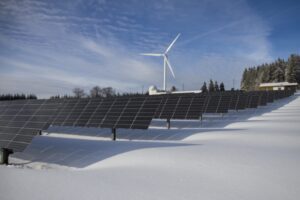
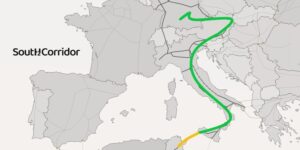







[…] economy already affected by energy prices, due to the war between Russia and Ukraine, is hitting domestic finances and the public’s […]
[…] for the purpose of making a profit and to support a population of over 1 billion people that depends on energy imports. That’s why he dubbed Antarctica the “global treasure house of […]
[…] said, there is an energy vulnerability due to geopolitics, which could not be easily resolved without the option of using the new floating LNG terminals, […]
[…] lose its power to blackmail and influence the foreign policies of importing European countries of Russian gas. And at the same time, European countries (major energy consumers) would “clean up” […]